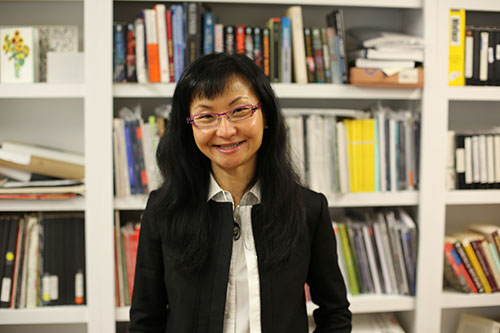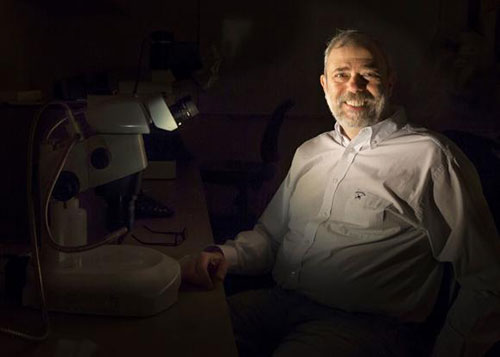
PROVIDENCE, R.I. [Brown University] — Two Brown University faculty members have won fellowships from the John Simon Guggenheim Memorial Foundation, the organization announced on Wednesday, April 6.
Wendy Hui Kyong Chun, professor of modern culture and media, and history of art and architecture, and Alberto E. Saal, associate professor of Earth, environmental and planetary sciences, were two of the 178 awardees for 2016, selected on the basis of prior achievement and exceptional promise from among nearly 3,000 applicants.
Chun, who chairs Brown’s Department of Modern Culture and Media, will use the Guggenheim fellowship, along with another recent fellowship from the American Council of Learned Societies, to advance a research project titled “Discriminating Data: Neighborhoods, Individuals, Proxies.”
She’s examining how machine-learning algorithms use seemingly neutral “proxies” — movie preferences, for example, via a streaming media service — to track characteristics like race, gender, class and sexuality without explicitly acknowledging that, which can reinforce stereotypes and segregate users. Chun says rethinking the assumptions that underlie these algorithms could open up new and unexpected interactions and collaborations.

“If the critique of big data right now is that all of our actions are being captured and we’re being analyzed against our will, what if we viewed our actions as those of characters – as opposed to marionettes – in a drama called Big Data?” she asks. “What if we tried to intervene?”
Chun says exploring research interests such as this would be impossible without awards like the Guggenheim. “Fellowships like these are essential,” she said. “They give you a tremendous period of time to actually contemplate, think through problems and engage things differently.”
With academic expertise in geology and geochemistry, Saal studies the scale, composition and evolution of the Earth’s and the Moon’s mantles. One key to understanding to origin of life on Earth is learning how water and other volatile compounds came to exist in the inner solar system. The Moon provides a frozen record of the first few hundred million years of solar system evolution and offers a unique opportunity to study volatile origin and evolution. But accounts of how volatile-rich the Moon might be vary widely. Researchers from the Institut de Physique du Globe de Paris and the Ecole Normale Supérieure de Lyon suggest the Moon is bone dry — 100 to 1000 times more depleted of volatiles than Earth. In contrast, Saal and collaborators from the Carnegie Institution for Science suggest the Moon is only five to 10 times more depleted.

Saal will use the Guggenheim fellowship, along with a Fulbright fellowship and sabbatical support from Brown, to work with the French team to try to resolve these competing views.
“This is an important scientific problem,” Saal said. “There is no better approach to solving it than for scientists representing very different interpretations to join forces and work together. This approach will provide an excellent example for graduate students and postdocs of how to resolve scientific debate and foster stronger collaboration.”
Edward Hirsch, president of the foundation, said the 175 artists, writers, scholars and scientists “represent the best of the best” in the variety of disciplines from which they come.
“Each year since 1925, the Guggenheim Foundation has bet everything on the individual, and we’re thrilled to continue to do so with this wonderfully talented and diverse group. It’s an honor to be able to support these individuals to do the work they were meant to do.”